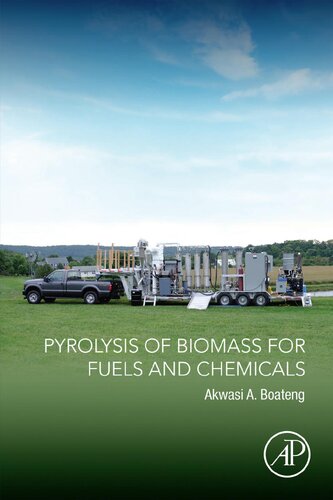

Most ebook files are in PDF format, so you can easily read them using various software such as Foxit Reader or directly on the Google Chrome browser.
Some ebook files are released by publishers in other formats such as .awz, .mobi, .epub, .fb2, etc. You may need to install specific software to read these formats on mobile/PC, such as Calibre.
Please read the tutorial at this link. https://ebooknice.com/page/post?id=faq
We offer FREE conversion to the popular formats you request; however, this may take some time. Therefore, right after payment, please email us, and we will try to provide the service as quickly as possible.
For some exceptional file formats or broken links (if any), please refrain from opening any disputes. Instead, email us first, and we will try to assist within a maximum of 6 hours.
EbookNice Team

Status:
Available4.4
13 reviewsPyrolysis of Biomass for Fuels and Chemicals provides a thorough overview of thermochemical conversion of biomass to fuels and chemicals via the pyrolysis platform. The book covers the principles underlying pyrolysis of biomass from the chemical engineering perspective. It discusses thermal-only pyrolysis, the traditional pyrolysis process under inert atmosphere with no catalyst, and the role of catalytic pyrolysis and tail gas reactive pyrolysis in resolving the instability issues associated with product distribution. The addresses condensed phase upgrading where the oil produced can be upgraded for stability or hydrogenated to drop-in transportation fuels, as well as feedstock selection, including opportunity fuels/feedstocks.
Finally, pilot and demonstration scale projects from around the world are examined, and some immediate applications of pyrolysis oils in combustion systems are analyzed. Engineering researchers and professionals in the bioenergy, biochemical, and petrochemical fields find in this book a complete resource for understanding the relationships between possible technologies, applications, costs, and products value, as they tackle the challenges for large scale adoption of pyrolysis for the production of 2nd generation biofuels and biochemicals. PhD students in areas of energy, chemical, mechanical, and materials engineering will also benefit from fundamental and applied research in a concise format that can save them time and serve as a reference through bioenergy conversion courses.